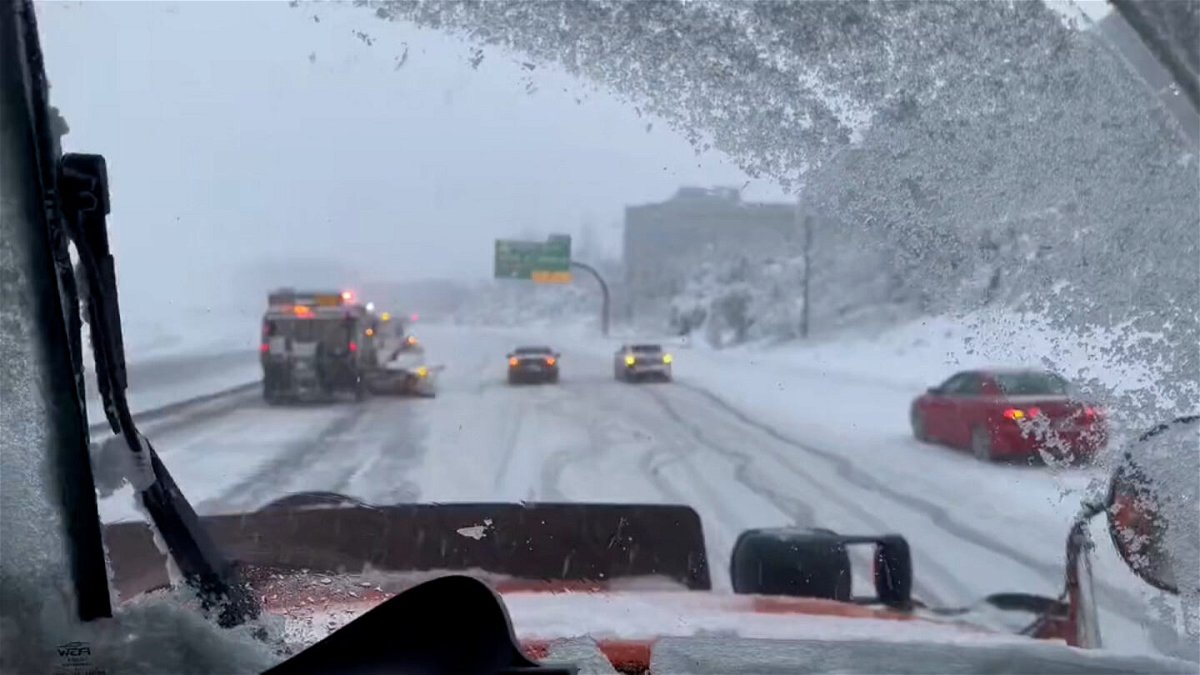More than 1,700 flights canceled as winter storm hits US

The Utah Department of Transportation posted a video on Twitter showing their trucks plowing snow on the I-215. The video also shows several cars struggling to move in the snow.
Tamara Hardingham-Gill, CNN
More than 1,700 flights were canceled in the United States on Wednesday as a winter storm hit the country, with disruptions set to continue through Thursday.
By the end of the day, a total of 1,771 flights in and out of the US had been canceled, according to flight tracking site FlightAware. Regional carrier SkyWest, which operates through partnerships with United, Delta, American and Alaska Airlines, had canceled more than 400 flights. Delta canceled more than 300 flights, while Southwest canceled close to 290.
Meanwhile, more than 6,400 flights were delayed on Wednesday.
Minneapolis−Saint Paul International Airport, Denver International Airport and Detroit Metropolitan Wayne County Airport were the most heavily affected, according to FlightAware. Toronto Pearson International Airport in Canada, Chicago O’Hare International Airport and Milwaukee Mitchell International Airport were also experiencing disruption.
Close to 700 Thursday flights have already been canceled as of 2:20 a.m. ET.
Southwest Airlines has issued winter weather waivers for about a dozen airports.
Delta Air Lines has issued waivers for Upper Midwest winter weather and Rockies and Mountain regions winter weather.
American Airlines and United have also issued winter weather waivers for travel this week.
The flight disruption comes after winter weather alerts were issued across 29 states, including California, Minnesota and Maine, with warnings of severe icing, extreme cold and sleet as part of the three-day storm.
The Minneapolis area of Minnesota is at risk of picking up at least 15 inches of snow, with the National Weather Service in Minnesota’s Twin Cities warning the powerful storm “will bring widespread accumulating snow, with blowing and drifting snow mainly Wednesday through Thursday.”
Correction: A previous version of this story misidentified Delta Air Lines.
The-CNN-Wire
™ & © 2023 Cable News Network, Inc., a Warner Bros. Discovery Company. All rights reserved.
CNN’s Aya Elamroussi also contributed to this article






